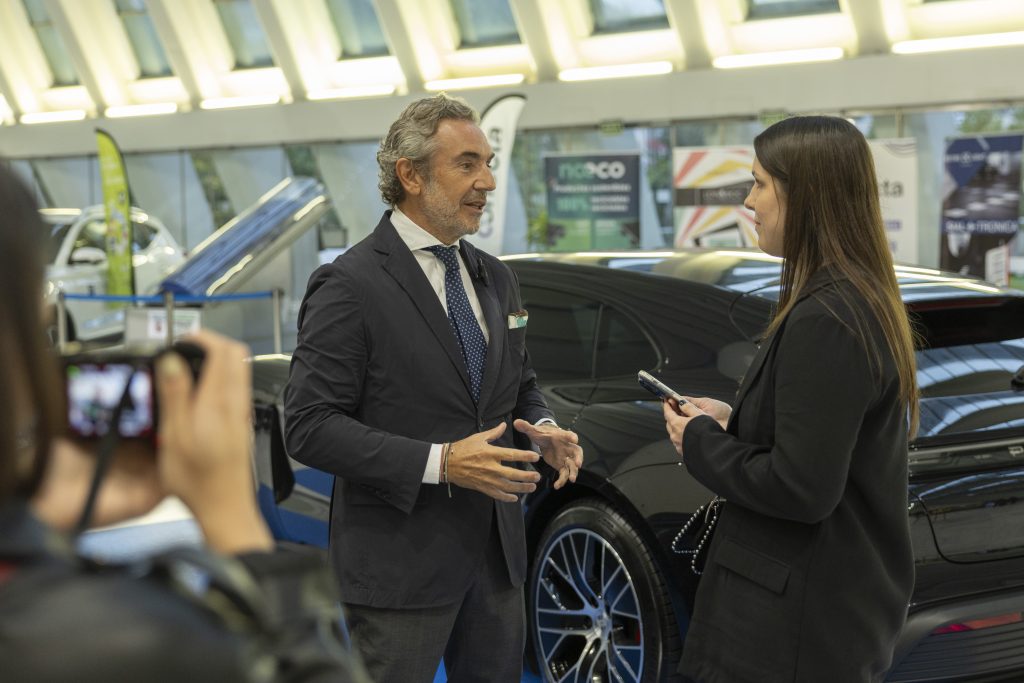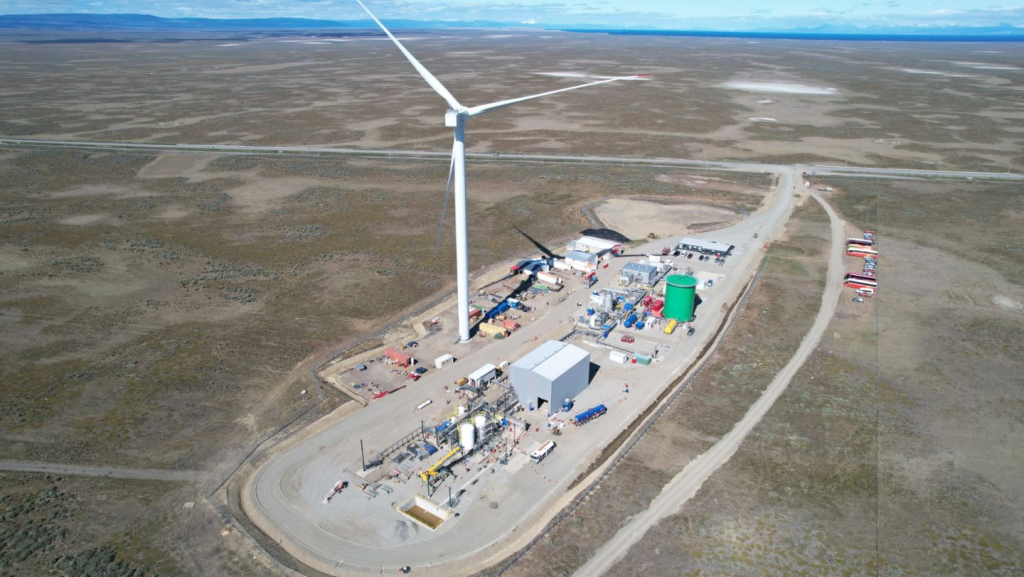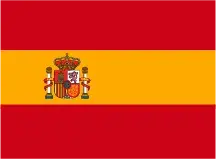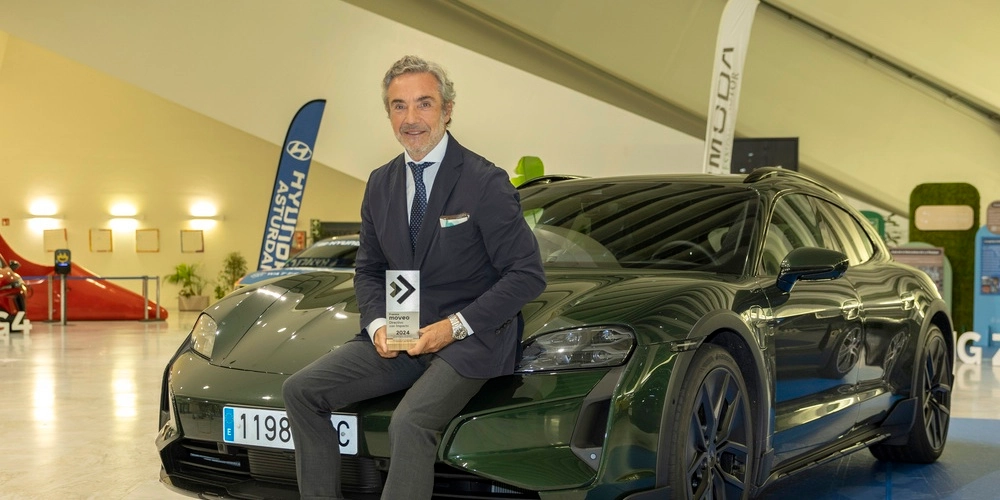While for some car manufacturers, the transition to electric mobility represents a significant challenge, Porsche meticulously plans its steps with the goal of leading this sector.
And they are succeeding, as confirmed by users during MOVEO.
At the event organized by the Spanish Electric Vehicle Users Association (AUVE), Tomás Villén was awarded in the “Executive with Impact” category.
The reason? His strategic vision and leadership have been instrumental in driving a significant transformation in his company, creating a positive effect in the social, environmental, and economic spheres.
In an exclusive interview with Mobility Portal Europe, the CEO of Porsche Ibérica reveals the firm’s strategy to position itself in this sector:
“The Spanish market is approximately 20% below pre-pandemic levels, while we, thanks to our commitment to electrification, are surpassing those figures by 42%.”

The brand has traditionally been recognized for its outstanding engineering capabilities, but electrification adds a new layer of complexity.
In this regard, Villén insists that this challenge is not new for the company.
As an example, he mentions: “We made the decision to switch to water-cooled engines, which at the time surprised many, but allowed us to get where we are today.”
This spirit of innovation and adaptability has been key to their success.
“This is just another challenge we must face, and we will do so as we always have: with courage and striving to lead in situations like this,” he emphasizes.
According to the CEO, failing to rise to the occasion could not only prevent a company from achieving its goals but also lead it to disappear from the market.
This success is also reflected in the loyalty of their current customers, who make up 50% of electric vehicle buyers, as well as in the addition of 50% of new customers.
“This shows that we are not only retaining our most loyal followers but also attracting a new generation looking for an electric Porsche,” Villén highlights.
The firm’s strategy is not limited to zero-emission vehicles like the Taycan but also includes a gradual transition through plug-in hybrid models.
In 2020, more than 75,000 hybrid units had already been manufactured, and in 2019, 60% of Panameras sold in Europe were low-emission versions.
Regarding hybrids, the CEO mentions that models like this and the Cayenne currently represent around 95% of sales.
With the growing surge of zero-emission cars, Porsche forecasts that 50% of the cars produced in 2025 will be electric, increasing to 80% by 2030.
Moreover, there is also a clear commitment to the development of e-fuels.
“There are those who want to be sustainable but can’t afford an electric car, and we are looking for solutions for them,” explains Villén.
To meet this demand, the automaker has a synthetic fuel plant in Punta Arenas, Chile, as part of the Haru Oni project.

With all this, what is the strategy to compete in the international market?
Considering the recent imposition of tariffs by Europe on electric vehicles made in China, Villén points out that Porsche is committed to “fair competition.”
“The company has a clear purpose: we want to contribute to reducing CO2 emissions, and at the same time, ensure that Porsche remains Porsche,” he asserts.
To achieve this, the CEO highlights the importance of acting with courage during the transition, noting that “the only place a coward is admired is in The Wizard of Oz.”
Ambitious goals, well-defined plans, and, above all, the involvement of everyone in the process are the keys to the brand that has not only kept it competitive but also allowed it to lead the sector.
“We came into this world to be excited, and the development of electric vehicles excites us,” he insists.
The MOVEO “Executive with Impact” award represents Villén a recognition of the vision shared by his team, which has managed to carry out a transition that, according to him, “is not easy, but it is the right one.”








